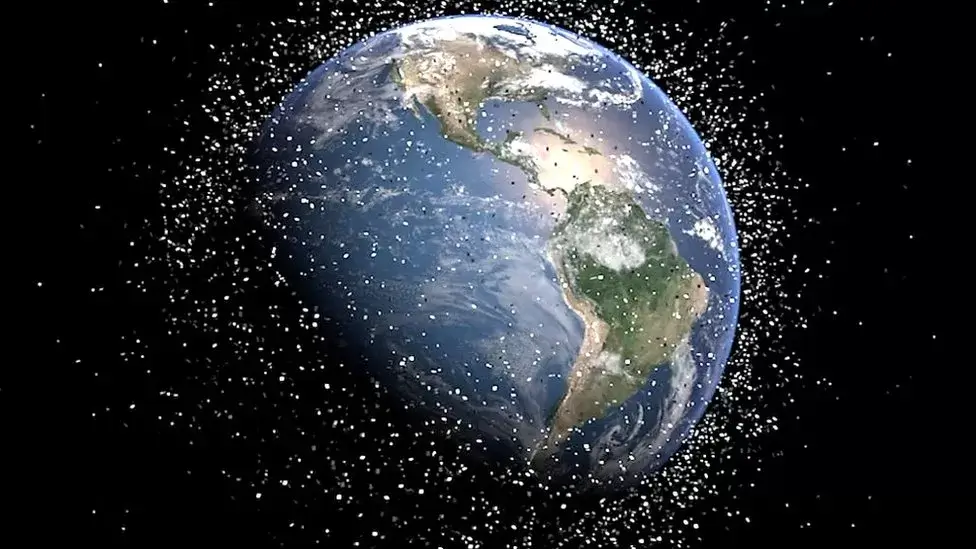In a groundbreaking move, the United States government has taken a significant step in space regulation by issuing its first-ever fine to a company for leaving space junk in Earth’s orbit. The Federal Communications Commission (FCC) imposed a fine of $150,000 (£125,000) on Dish Network for its failure to move an old satellite, EchoStar-7, far enough away from active satellites. This historic fine highlights the increasing concern over space debris, also known as space junk, which poses a significant risk of collisions in Earth’s orbit.
Space junk comprises defunct satellites and other fragments of technology that remain in orbit around Earth but are no longer operational. The accumulation of such debris has become a pressing issue as it jeopardizes the safety of operational satellites and spacecraft. EchoStar-7, launched in 2002, was situated in geostationary orbit at an altitude of 22,000 miles (36,000km) above Earth’s surface. Dish Network was required to move the satellite 186 miles further from Earth, but by the end of its operational life in 2022, it had only been moved 76 miles due to a loss of fuel.
The FCC, responsible for regulating communications in the United States, deemed Dish’s satellite a potential threat to other active satellites in its vicinity. As satellite operations become increasingly common and the space economy expands, regulatory agencies like the FCC must enforce stringent rules to ensure the safety and sustainability of space activities. The FCC’s enforcement bureau chief, Loyaan Egal, emphasized the importance of operators complying with their commitments, especially as the space industry continues to grow. He hailed this fine as a breakthrough settlement, underscoring the FCC’s robust enforcement authority in addressing vital space debris regulations.
Although the $150,000 fine represents a small fraction of Dish Network’s total revenue, which amounted to $16.7 billion in 2022, its significance resonates throughout the satellite industry. Dr. Megan Argo, a senior lecturer in astrophysics at the University of Central Lancashire, noted that this regulatory action is likely to grab the attention of other industry players. The prospect of regulatory fines may encourage satellite operators to adhere strictly to space debris rules, thereby mitigating the risk of collisions and the generation of additional space debris.
The issue of space debris is a global concern, with more than 10,000 satellites launched into space since the inception of space exploration in 1957. Over half of these satellites are now defunct, contributing to the growing problem of space debris. According to NASA, there are currently over 25,000 pieces of space debris measuring over 10cm long, posing a significant threat to operational spacecraft and astronauts. Bill Nelson, the administrator of NASA, emphasized the severity of the problem, highlighting that even small debris, such as a paint chip, traveling at orbital speeds of 17,500 miles an hour, could prove fatal if it were to collide with an astronaut during a spacewalk.
In light of the increasing proliferation of satellites and the associated rise in space debris, regulatory actions like the FCC’s fine against Dish Network are crucial to maintaining the safety and sustainability of space activities. As humanity continues to explore and utilize space, it is imperative to address the challenges posed by space debris effectively. This landmark fine serves as a reminder of the collective responsibility to safeguard Earth’s orbit for future generations.





